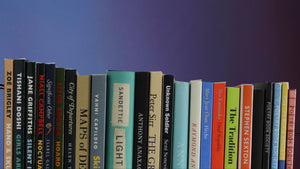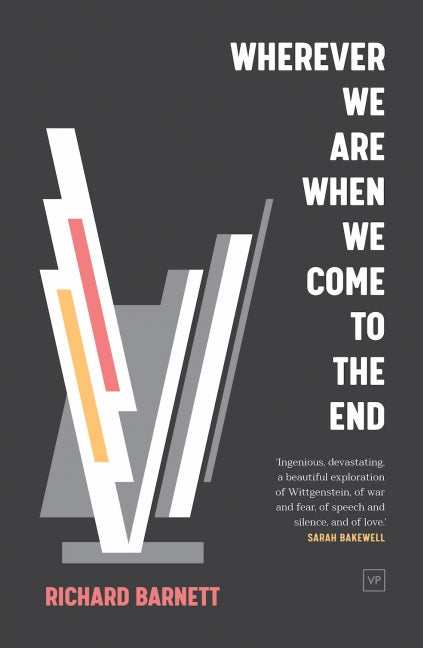Wherever We Are When We Come To The End by Richard Barnett
Valley Press
Spring 1916: Ludwig Wittgenstein is on his way to the Eastern Front.
Wittgenstein’s Tractatus Logico-Philosophicus, the terse, gnomic masterpiece of modern philosophy, is also a war poem. At the outbreak of the First World War this strange, intense, immensely wealthy young man volunteered as a private soldier in an Austro-Hungarian regiment, serving in some of the most brutal battles of the conflict, and carrying notes for the Tractatus in his backpack.
Wherever We Are When We Come to the End digs into the form and the language of the Tractatus, following Wittgenstein through the war and his own conflicts with words and silence, violence and grief, time and eternity. The result is a highly original formal experiment and a poetic fantasia on logic, love and war.
‘Ingenious, devastating, and filled with emotional riches – a beautiful exploration of Wittgenstein, of war and fear, of speech and silence, and of love.’
— Sarah Bakewell
‘A work of double history, an excavation of war and false peace carried out with a single archaeological implement: poetic language. Barnett’s field call to the trench-footed Wittgenstein, intent on keeping his Tractatus from the rats, is relayed to the reader as proof of Electronic Voice Phenomena. Through imagery as deep and tannin-hued as Mercian Hymns, Barnett pulls off the impossible: revealing the still pulsing consciousness of the greatest mind in analytic philosophy.’
— Chris McCabe
‘Richard Barnett has opened a new window on the Great War, that reveals its territorial encounters of precision, humanity and sacrifice. He gives us a view that soars into extraordinary devotional spaces, but always returns to the haunting details of a soldier’s life, where, no matter what the time and place, the blue field coat will always hang on the back of the door.’
— Emily Mayhew
‘If you like your Wittgenstein, your poetry, and your WWI history, this is right up your street. It recreates Ludwig’s time at war in ways that are startling, and gripping, and there’s a deep poignancy that runs through it.’
— Rishi Dastidar
‘A beautiful short work that manages to maintain intimacy even in the aphoristic.’
— Rachel Genn

MEMBERS ENJOY 25% OFF ALL POETRY BOOKS

Join the Poetry Book Society for 25% off all books
Join the Poetry Book Society for 25% off all books

